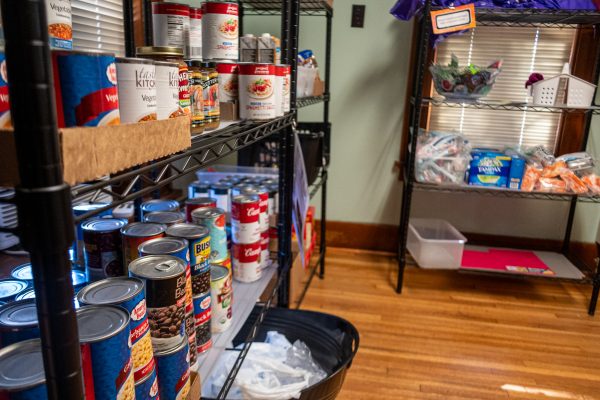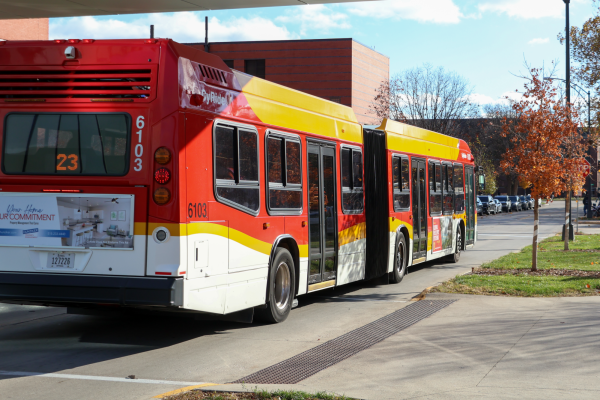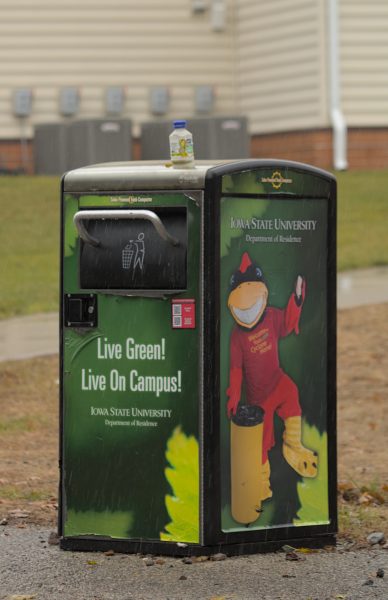Iowa Board of Regents proposes tuition increase
A 3.5% increase for in-state and 4% increase for out-of-state students for the 2023-24 academic year has been proposed.
The Iowa Board of Regents has proposed a tuition increase for the state’s public universities which entails a 3.5% increase for in-state and 4% increase for out-of-state students for the 2023-24 academic year and increasing some mandatory student fees.
The proposal aims to address rising costs associated with technology, student health services, student activities, transportation and infrastructure maintenance. The proposed increase amounts to a $304 increase for in-state students and $1,006 increase for out-of-state students. The proposal also includes a $60 increase in mandatory fees for Iowa State students.
Regent David Barker said that the proposed 3.5% increase is lower than the current inflation rate, which stands at 5%. He emphasized the Board of Regents’ commitment to maintaining affordability for middle-class Iowans.
“The increase in the undergraduate tuition is 3.5%, which is well below the inflation numbers that are running close to 5%,” Barker said. “The most recent increase in Iowa per capita income is 7.4%, and the median house price in Iowa would increase by 5.2%. We continue to be affordable for middle-class Iowans. In fact, in real terms, we are cutting tuition, which is less than the inflation rate.”
Barker also said that the increase falls below the most recent rise in Iowa’s per capita income, illustrating the Board’s efforts to align with economic conditions.
In preparation for the upcoming June meeting, the Board of Regents plans to engage with student leaders from Iowa State University, the University of Iowa and the University of Northern Iowa, to discuss the increase.
Mack Shelley, a professor of political science at Iowa State, voiced concerns about the proposed increase and its impact on financially struggling students.
“If you keep doing the same things we’ve always been doing and it gets more expensive to do that, that’s inflation basically,” Shelley said. “The additional cost for providing services like career support for students is more than just the cost of inflation.”
Shelley also said the university challenges in securing sufficient funding from the state.
“The state contribution to the regents universities, accounting for inflation, is about what it would’ve been in the 1990s,” Shelley said. “This has caused a significant decrease in funding for higher education in the state. As a result, tuition costs have been on the rise.”
Shelley said he was concerned about the long-term consequences of tuition increases, fearing a potential loss of Iowa State University’s competitive advantage if institutions continue raising tuition to sustain student support.
“If the academic institutions in Iowa keep increasing tuition to maintain student support, it’s probably inevitable that we’re gonna lose that competitive advantage,” Shelley said.
Shelley said the university attempts to alleviate students’ financial burdens but that the ultimate burden is placed on students and their parents.
“The money has to come from somewhere,” Shelley said. “Unfortunately, it winds up coming out of the students.”
However, he expressed concern that continued tuition increases across all Iowa institutions driven by financial sustainability could erode this advantage over time.
“Iowa State University’s competitive advantage lies in its affordable tuition, particularly in attracting students from neighboring states,” Shelley said.
The Iowa Board of Regents is set to hold a meeting in June to further discuss and finalize the proposed tuition increase.
Your donation will support the student journalists of the Iowa State Daily. Your contribution will allow us to purchase equipment, send our student journalists to conferences and off-set their cost of living so they can continue to do best-in-the-nation work at the Iowa State Daily.








Scotty | Jun 6, 2023 at 8:15 pm
How about addressing the continued dramatic gap in increase between in state and out of state? This round the out of state is more than triple the in state. I get there is the state taxes are part of the real total for in state, but this extreme gap is a major deterrent for neighboring states. Our kids are considering their options as top of class, very involved students but ISU will be off the list due to this continued practice.